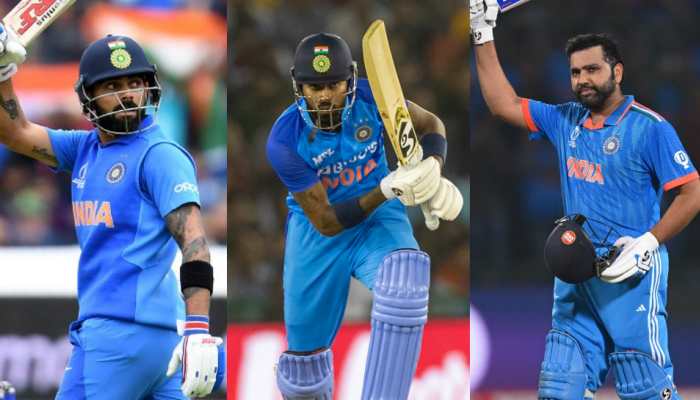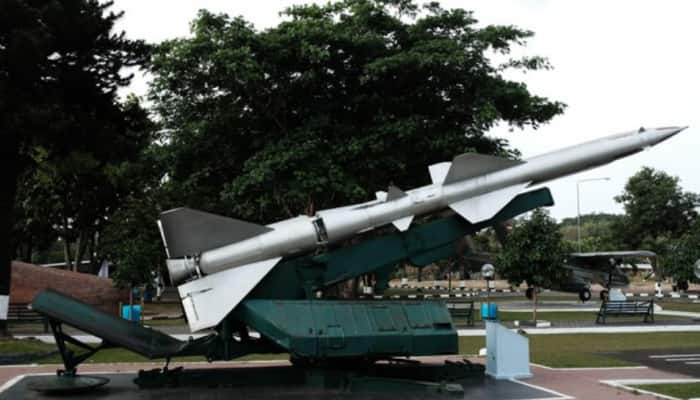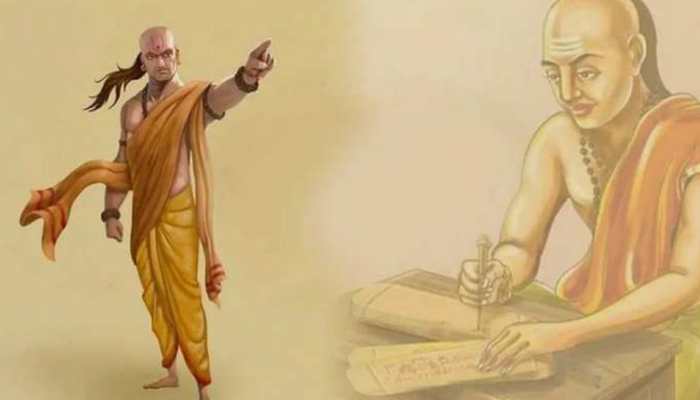#IndiaAt75: Seven landmark events the country witnessed in the last one year
Independence Day 2021: India is all set to turn 75. Here's looking at some of the major events in the country in the past one year that made headlines.
Trending Photos
)
From the August 15, 2020 to Independence Day 2021, several newsworthy events have taken place and made headlines. Be it political, social or environmental, several incidents have grabbed eyeballs over the last one year. Coronavirus, unfortunately, continues to draw our attention, even one-and-half-years after the virus hit the country hard. While COVID and related curbs have the world a tougher place, several natural calamaties in the form of cyclones and floods have added to the nation's woes. But India's spirit is synonymous with resilience. For instance, we now have five vaccines to stem the spread of the virus. India has also put its foot down when it comes to social media giants like Twitter not complying to its IT laws. Always known for its politically charged environ, the last one year also saw a special court delivering the much-awaited decision on Babri Masjid demolition. The ongoing farmers' protest have remained a sore spot for the government. Here's a look at some of the major incidents that became the talk of the town, literally, in the country.
Babri Masjid: Acquittal of the accused
On September 30, 2020, almost 28 years after the Babri Masjid was razed, a special court in Lucknow acquitted all 32 people including BJP veterans L.K. Advani, M.M. Joshi and Uma Bharti accused of being involved in the demolition of the mosque they believed occupied the spot where Lord Ram was born.
The 16th century mosque was demolished on December 6, 1992, triggering riots that left hundreds dead in the country and widening rifts between the communities. This was one of the most-awaited judgements of recent times. In a judgment that ran to 2,300 pages with enclosures, the special CBI court said there was no conclusive evidence against the 32 accused of being involved in any conspiracy to bring down the disputed structure in Ayodhya. The court also observed that the late Vishwa Hindu Parishad leader Ashok Singhal wanted to save the structure because Ram idols were inside.
Farmers’ protests: Farmers-Centre at an impasse
Ever since three farm acts were passed by the Parliament of India in September 2020, a section of farmers in India have been protesting against the farm bills, saying they go against the interest of the farmers. The farmers are demanding a repeal of three farm laws — Farmers' Produce Trade and Commerce (Promotion and Facilitation) Act, 2020; the Farmers Empowerment and Protection) Agreement on Price Assurance and farm Services Act 2020 and the Essential Commodities (Amendment) Act, 2020. They also demanded a legal guarantee on Minimum Support Prices (MSP) for their crops.
There have been several rounds of talks with the government, but solution seems a far way off. While farmers started protesting in their respective states initially, especially Punjab, soon they moved to the national capital to put pressure on the central government.
From Dilli Chalo, blocking of borders and roads, Republic Day Kisan parade to protesting recently at Jantar Mantar, farmers' have been protesting against the acts.
The issue became a political affair with Opposition leaders led by Rahul Gandhi often extending their full support to protesting farmers.
Meanwhile, on January 11, the Supreme Court stayed the implementation of new farm laws till further.
Fight against COVID: India approves its first two vaccines
COVID-19 has triggered a pandemic of a scale which was unfathomable even 1.5 years back. Five vaccines — Serum Institute’s Covishield, Bharat Biotech’s Covaxin, Russia’s Sputnik V, Moderna, and Johnson & Johnson have been granted Emergency Use Authorisation in India till date (as of August 10). While J&J's single-dose vaccine is the latest to join the list of COVID jabs in the county, the approval of the FIRST TWO vaccines remain a significant step in fighting a pandemic, which is by far the biggest news of the century.
In January 2021, India formally approved the emergency use of two coronavirus vaccines - AstraZeneca with Oxford University, the India version of it being known as Covishield, and the second being Covaxin by local firm Bharat Biotech. India's vaccination drive is touted as one of the world's biggest inoculation drives and after the country approved its first two vaccines, Prime Minister Narendra Modi called it "a decisive turning point".
Climate activist Disha Ravi and the toolkit case
The arrest of 22-year-old climate activist Disha Ravi by Delhi Police in the 'toolkit' case created a furore across India.
Disha was arrested in the 'toolkit' document case in February 2021 from Bengaluru for allegedly sharing a toolkit related to the farmer's protest against the Centre's three new agriculture laws, police said. This toolkit was later used by teen anti-climate change campaigner Greta Thunberg, and made headlines. The Delhi Police claimed that Disha was an editor of the "toolkit Google doc" and "key conspirator" in the document's formulation and dissemination. The Police said Disha, among others, had collaborated with pro-Khalistani Poetic Justice Foundation (PJF) to spread disaffection against India. While the police tried to link the 'toolkit case' to the tractor rally violence that took place on January 26 in Delhi - it led to several police personnel and a civilian being injured, a Delhi Court rejected the claim. Terming the ‘toolkit’ shared by Disha as “innocuous”, a Delhi Court granted her bail. The court said the evidence produced by police against Disa was scanty and sketchy and there was nothing on record to establish any direct link between her and pro-Khalistan activists of PJF. The court also said there was not even an iota of evidence brought connecting the perpetrators of the violence on January 26 in the national capital with the PJF or her.
The arrest of Disha led to sharp protests with politicians, academicians and students hitting out at the authorities for trying to muzzle dissent.
The devastating second wave of coronavirus
If the first wave was difficult, the second wave was even more devastating for the country with shortages of vaccines, hospital beds, oxygen cylinders and other medicines in parts of the country. As per media reports, on April 30, 2021, India becomes first country in the world to report over 4 lakh new cases in a 24-hour period. While the US also shared the dubious record later, India saw more instances when over 4 lakh cases were recorded in a day. On April 27, the total number of deaths due to Covid-19 in the country crossed 2 lakh. However, the government has been accused of gross underreporting, a claim the government has stoutly declined.
The second COVID wave exposed India's inadequate healthcare system, in not just smaller towns and rural areas, but the most developed cities of India, including the heart of the country, the capital. Delhi was one of the worst hit in the second wave.
Major climate disasters
In February, a devastating flash flood cause havoc in Uttarakhand, with nearly 200 people gone missing or killed. Not more than 60 bodies were found. Also known as the Chamoli disaster, it began on 7 February 2021 in the environs of the Nanda Devi National Park, and experts said that the disater was caused by massive chunk of glacier in the high mountains breaking off.
In May 2021, Cyclone Tauktae hit western India, including Mumbai, killing off nearly 155 people. It was touted to be one of the fiercest storms to hit the area in several decades.
Just about a week later, another cyclone named Yaas made a landfall in Odisha and brought significant impacts to West Bengal during late May 2021. The cyclone caused major damage to the region, especially Odisha, and reportedly forced the evacuation of more than 1.5 million in the east.
Twitter Vs the Government of India
The tussle between Twitter and the Indian government continued to grab headlines for several months. The Ministry of Electronics and Information Technology (MeitY) had said that Twitter’s refusal to comply with the India's new IT rules demonstrated the microblogging site’s “lack of commitment and efforts towards providing a safe experience for the people of India on its platform”. Twitter, meanwhile, had spoken about alleged intimidation and threat to free speech. But slamming Twitter, the government of India said that the microblogging platform had sought to undermine India’s legal system, through its actions and deliberate defiance. The IT ministry had termed the company’s stance as an attempt to dictate terms to the world’s largest democracy.
Twitter had previously landed in trouble after it tagged several tweets by ruling BJP leaders, mainly Sambit Patra, as "manipulated media". This triggered a sharp rebuke from the government. Twitter also lost its 'intermediary' status in India over non-compliance with the new IT rules for the social media companies. This means instead of being considered just a platform hosting content from various users, Twitter will be directly editorially responsible for posts published on its platform.
Stay informed on all the latest news, real-time breaking news updates, and follow all the important headlines in india news and world News on Zee News.
Live Tv







)
)
)
)
)
)
)
)
)
)

